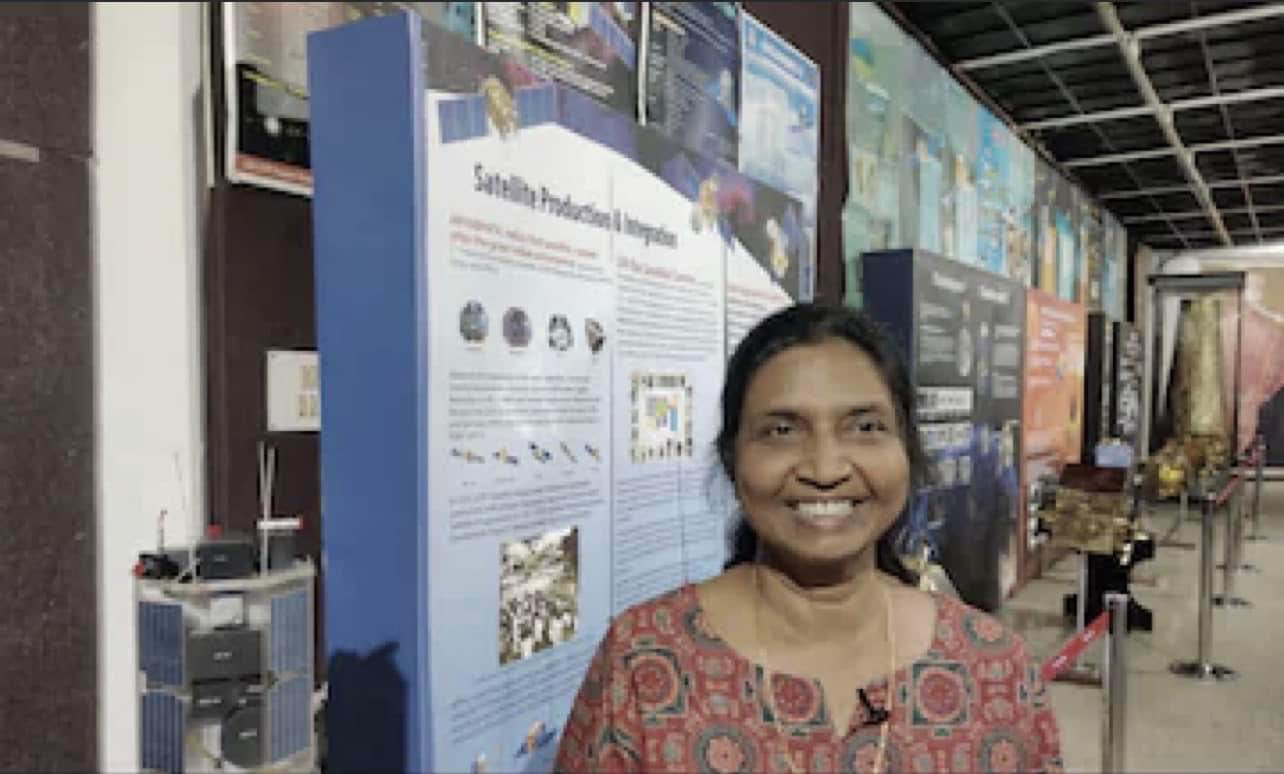Shaji Nigar is not a household name, but she is one of the most influential and respected figures in the Indian space programme. She is the project director of Aditya L1, India's first mission to study the Sun, which was successfully launched on September 2, 2023. She is also the programme director for all lower orbit and planetary missions, overseeing some of the most ambitious and challenging projects of the Indian Space Research Organisation (ISRO).
Shaji's journey to the top of ISRO began in 1987, when she joined the elite space agency as a young engineer. She had always been fascinated by space and astronomy, and had dreamed of working for ISRO since she was a child. She was born and brought up in a small town in Kerala, where she excelled in academics and extracurricular activities. She completed her B.Tech in Electronics and Communication Engineering from the College of Engineering, Trivandrum, and secured a rank in the ISRO entrance exam.
She started her career at the Satish Dhawan Space Centre in Sriharikota, off the Andhra coast, where she worked on various launch vehicles and satellites. She was part of the team that launched India's first remote sensing satellite, IRS-1A, in 1988. She also worked on the PSLV, GSLV, and GSLV Mk III rockets, and was involved in several landmark missions, such as Chandrayaan-1, Mars Orbiter Mission, and Chandrayaan-2.
In 2012, she was transferred to the U R Rao Satellite Centre in Bengaluru, which is the key centre for developing satellites. She became the associate project director of Resourcesat-2A, a high-resolution earth observation satellite, which was launched in 2016 and is still operational. She also worked on other satellites, such as Cartosat-2, Oceansat-2, and Astrosat.
In 2019, she was appointed as the project director of Aditya L1, India's first mission to study the Sun. She led a team of over 200 scientists and engineers, who designed, developed, and tested the spacecraft and its seven scientific payloads. She also coordinated with various national and international partners, such as NASA, ESA, and JAXA, who provided technical and logistical support for the mission. She was responsible for the overall planning, execution, and monitoring of the mission, from its inception to its launch and operation.
Shaji faced many challenges and difficulties in her role as the project director of Aditya L1. The mission was complex and unprecedented, requiring a high level of precision and innovation. The spacecraft had to be placed at the L1 point, a stable orbit around the Sun-Earth line, which is about 1.5 million km from the Earth. The spacecraft also had to withstand the harsh radiation and temperature conditions of the Sun, and perform continuous observations of the solar phenomena. The mission also faced several delays and disruptions due to the COVID-19 pandemic, which affected the supply chain, testing, and launch preparations.
Despite all the hurdles, Shaji and her team managed to overcome them with their dedication, hard work, and creativity. They ensured that the spacecraft and its instruments met the highest standards of quality and reliability. They also ensured that the mission was completed within the budget and schedule. They achieved a flawless launch of the spacecraft aboard the PSLV-XL rocket on September 2, 2023, and a successful insertion at the L1 point on January 6, 2024.
Shaji is proud and happy with the outcome of the mission, which is expected to provide valuable insights into the Sun and its effects on the Earth. She is also grateful for the support and guidance of her seniors, colleagues, and mentors, who helped her throughout her career. She is especially thankful to her family, who supported her dreams and aspirations, and encouraged her to pursue her passion.
Shaji is an inspiration for many young women and girls, who aspire to join the space sector. She is one of the few women who have reached the top positions in ISRO, and have made significant contributions to the Indian space programme. She is also a role model for many young scientists and engineers, who look up to her for her expertise, leadership, and vision. She is a humble and modest person, who believes in teamwork and excellence.
Shaji is not only the woman behind India's first mission to the Sun, but also a shining star in the Indian space programme. She is a pioneer, a leader, and a trailblazer, who has made history and created a legacy. She is a true space hero.

